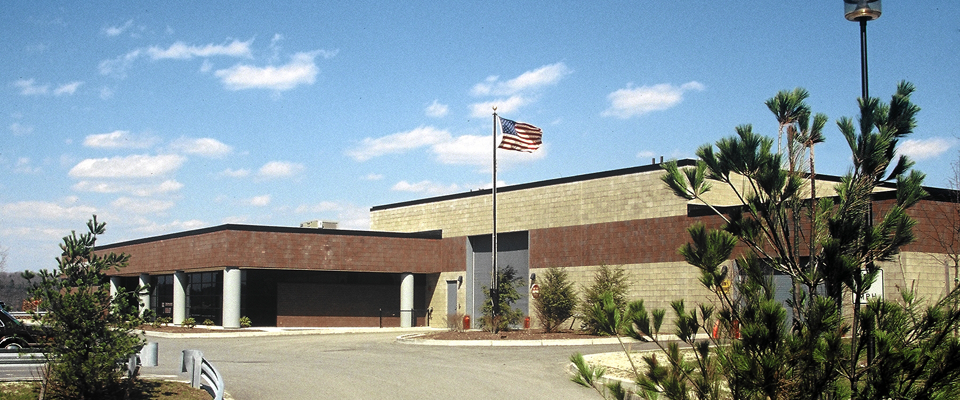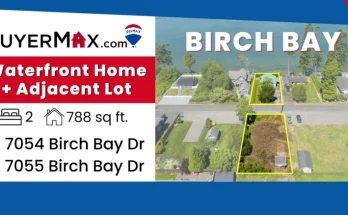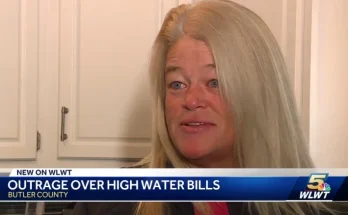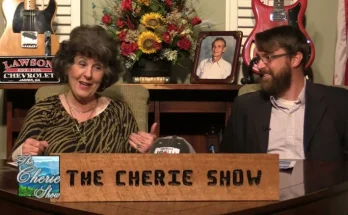If you live in Lynn, Massachusetts, you are probably aware of the Lynn Water and Sewer Commission (LWSC) that manages the city’s water and sewer services. Whether you are a resident or a business owner, it is essential to understand the LWSC and its functions to ensure safe and efficient water and sewer service delivery. In this article, we will explore every aspect of the LWSC, from what it is, how it operates, its pros and cons, payment options, job opportunities, and much more.

What is the Lynn Water and Sewer Commission?
The LWSC is an independent organization that provides water and sewer services to the residents of Lynn, MA, and parts of Swampscott, Nahant, and Saugus. The commission was established in 1992 as an independent agency by Massachusetts General Law Chapter 40N and is governed by a five-member board of commissioners appointed by the mayor. The LWSC’s primary responsibility is to ensure that the city’s water and sewer services are adequately maintained and delivered to meet the needs of its residents.
Key Facts about the LWSC
Here are some quick facts to give you an overview of the LWSC:
- The LWSC serves over 60,000 people in Lynn and the surrounding areas.
- It manages the city’s two water treatment plants and over 220 miles of water mains.
- The LWSC operates a wastewater treatment facility that processes over 11 million gallons of sewage daily.
- Its mission is to provide high-quality water and sewer services while protecting public health and the environment.
Who Manages the LWSC?
As mentioned earlier, the LWSC is managed by a five-member board of commissioners who are appointed by the mayor. The board members serve three-year terms and oversee the commission’s operations, including setting policies, approving budgets, and making critical decisions affecting the organization. The current board members are:
- Joseph F. Scanlon – Chairman
- Paul E. Crowley – Vice Chairman
- Deborah Smith – Treasurer
- Daniel M. O’Connell – Commissioner
- Jay Fink – Commissioner
How to Contact the LWSC
If you have any questions or concerns about the LWSC’s services, here is how you can get in touch with them:
- Phone: (781) 596-2400
- Email: [email protected]
- In-person: 300 Parkland Ave Lynn, MA 01905
What Services Does the LWSC Provide?
The LWSC provides two essential services to its customers: water and sewer. Here is a breakdown of each service:
Water Services
The LWSC provides high-quality drinking water that meets or exceeds all state and federal standards. The commission manages the city’s two water treatment facilities that draw water from the Ipswich River and the Boston Water Supply. Additionally, the LWSC operates over 220 miles of water mains that distribute the water throughout the city.
Sewer Services
The LWSC operates a wastewater treatment facility that processes over 11 million gallons of sewage daily. The treated water is then returned to the ocean through an outfall pipe. The commission also maintains over 200 miles of sewer lines and manholes throughout the city.
When Should You Contact the LWSC?
There are several reasons why you might need to contact the LWSC. Here are some common scenarios:
- New Service Connection: If you are moving into a new property or require a new water or sewer connection, you will need to contact the LWSC to set up a new account.
- Billing and Payment: If you have questions about your bill or payment options, the LWSC can provide assistance.
- Water Quality Concerns: If you have concerns about the taste, odor, or color of your water, you should contact the LWSC immediately.
- Sewer Backups: If you experience a sewer backup on your property, you should contact the LWSC as soon as possible to report the issue.
How to Pay Your LWSC Bill
The LWSC offers several payment options for its customers’ convenience. Here are some ways you can pay your bill:
- Online: You can pay your bill online by logging into your LWSC account.
- By Mail: You can send a check or money order to the LWSC’s mailing address.
- In-person: You can pay your bill in person at the LWSC’s office located at 300 Parkland Ave Lynn, MA 01905
Pros and Cons of the LWSC
Like any organization, the LWSC has its pros and cons. Here are some advantages and disadvantages of the commission:
Pros
- The LWSC provides high-quality water and sewer services to its customers.
- It operates two water treatment facilities that provide safe drinking water to the residents of Lynn and surrounding areas.
- The LWSC is an independent agencythat is not subject to political influence, ensuring that it can make decisions based on the best interests of its customers without interference.
- The commission offers convenient payment options for its customers, making it easy to manage bills.
Cons
- Some customers have reported high water bills, which can be a concern for those on a tight budget.
- The LWSC has been criticized for its handling of certain issues, such as sewer backups and infrastructure maintenance.
- The commission has faced criticism from some residents who believe that it should be consolidated with other city departments to reduce costs.
Alternatives to the LWSC
If you are not satisfied with the services provided by the LWSC, there are several alternatives available. Here are some options:
- Private Water and Sewer Companies: There are several private companies that provide water and sewer services in Massachusetts. These companies may offer different rates or service options than the LWSC.
- Well Water: If you live in a rural area, you may be able to use well water as an alternative to city water.
- Septic Systems: If you are not connected to the city sewer system, you may need to install a septic system to handle your wastewater.
Step-by-Step Guide to Setting Up a New LWSC Account
If you are moving into a new property or require a new water or sewer connection, here is a step-by-step guide to setting up a new LWSC account:
- Contact the LWSC to request a new service connection.
- Provide the required information, including your name, address, and contact information.
- Pay any necessary fees or deposits.
- Schedule an appointment for the installation of your new service.
- Once the installation is complete, your new service will be activated, and you can begin using it.
Comparing LWSC Rates to Other Massachusetts Water and Sewer Providers
The LWSC’s rates are comparable to other water and sewer providers in Massachusetts. Here is a comparison of the LWSC’s rates to two other providers:
| Service Provider | Water Rate (per 1000 gallons) | Sewer Rate (per 1000 gallons) |
|---|---|---|
| LWSC | $3.84 | $10.22 |
| Boston Water and Sewer Commission | $6.28 | $12.94 |
| Worcester Department of Public Works and Parks | $4.38 | $9.00 |
As you can see, the LWSC’s rates are lower than those of the Boston Water and Sewer Commission but higher than those of the Worcester Department of Public Works and Parks.
Tips for Conserving Water and Reducing Your Bill
If you are looking to conserve water and reduce your LWSC bill, here are some tips to help you save:
- Fix leaks promptly.
- Install low-flow showerheads and faucet aerators.
- Water your lawn and garden during the early morning or late evening to minimize evaporation.
- Use a broom instead of a hose to clean driveways and sidewalks.
- Only run full loads in your dishwasher and washing machine.
The Best Jobs at the LWSC
If you are interested in working at the LWSC, there are several job opportunities available. Here are some of the best jobs at the commission:
- Water Treatment Operator
- Wastewater Treatment Plant Operator
- Environmental Compliance Specialist
- Project Engineer
- Customer Service Representative
To apply for these jobs, visit the LWSC’s website or contact their human resources department.
FAQs about the LWSC
Here are some frequently asked questions about the LWSC:
1. How often should I pay my LWSC bill?
LWSC bills are issued quarterly, meaning you will receive a bill every three months.
2. Can I pay my LWSC bill online?
Yes, you can pay your LWSC bill online by logging into your account on the commission’s website.
3. What should I do if I have a water quality concern?
If you have a water quality concern, such as taste or odor issues, contact the LWSC immediately to report the issue.
4. How do I report a sewer backup?
If you experience a sewer backup, contact the LWSC as soon as possible to report the issue.
5. Does the LWSC offer any assistance programs for low-income customers?
Yes, the LWSC offers an assistance program for low-income customers who may have difficulty paying their bills. Contact the commission’s customer service department for more information.
Conclusion
The Lynn Water and Sewer Commission plays a vital role in ensuring the safe and efficient delivery of water and sewer services to Lynn residents and businesses. By understanding what the LWSC is, how it operates, its pros and cons, payment options, job opportunities, and more, you can make informed decisions about your water and sewer services. Rememberto explore the various ways to conserve water and reduce your bill, and don’t hesitate to contact the commission if you have any questions or concerns. With this article as a guide, you can feel confident in navigating all aspects of the LWSC in 2023.



